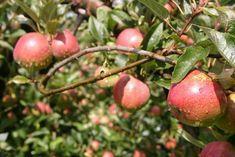
The volume of each apple variety on the market will continue to change significantly with arguably Cox and Jazz likely to be the most affected.
This was the prediction of Waitrose’s technical manager Alan Wilson at BIFGA’s 23rd annual technical day at Bewl Water, Lamberhurst, Kent last week.
He told a packed audience of more than 90 members that although Cox is “a wonderful variety” it’s difficult to grow and is in decline. Currently it accounts for 7.4 per cent of national apple sales and by 2015 its proportion is expected to be down to 6.7 per cent “although it’s here to stay”.
This situation is similar to that of the high quality King Edward potato variety that at one stage it seemed about to go out of production. Over the past 10 years or so, however, it has staged a comeback as a premium variety.
In contrast to Cox, Waitrose is selling more and more Jazz. By the end of this year its predicted share of apple sales will be four per cent rising to 7.3 per cent by 2015. Current total production of English Jazz is some 2,000 tonnes and this winter around 100,000 trees of the variety are being planted by Fruition growers.
“I don’t think that Jazz is eating into the Pink Lady market, a variety that’s doing very well in Waitrose stores,” he added. “But our Granny Smith and Golden Delicious sales keep going down although I think there’s an opportunity for English Golden Delicious and new varieties. We want to sell more British of everything.
“Gala is a fantastic apple and English Gala is some of the best in the world,” claimed Wilson. “The variety accounts for 25 per cent of our apple volume and its [full] potential has not yet been realised.”
Waitrose leads on quality, he maintained, “but it’s not just about skin finish but about how [a product] is being grown”. The public’s perception of quality goes far beyond how a product looks. They are also interested in how it’s being produced.
“We seem to have forgotten some of the key truths about how our food is produced,” reckoned Wilson, “but we are tackling this problem right down to the soil [whose viability] has been declining over the past 50 years. The soil is being over-farmed and is not supporting as much life and water as it should.”
Growers will need incentives for producing zero pesticide residue apples and consumers will have to pay more for them, but will they be willing to do so? That question was posed by EMR plant pathologist Dr Angela Berrie who recently completed a nine-year zero residue project.
Her main conclusions are that use of zero residue management looks promising and is achievable but it can be more risky and expensive than conventional systems.
“Consumers want perfect apples, varieties they have heard of and no pesticide residues but that’s a pretty tall order,” she declared.
“There were no residues in apples produced under the zero residue system and those in the conventionally produced fruit were below the MRL [maximum residue limit],” she said. “The problem is that increasingly accurate equipment can detect lower and lower residues [and so what’s not detectable now may be detectable in the future].”
She added that zero residue work is underway on other crops including stone fruit, raspberries, strawberries and blackcurrants, all Link projects.



